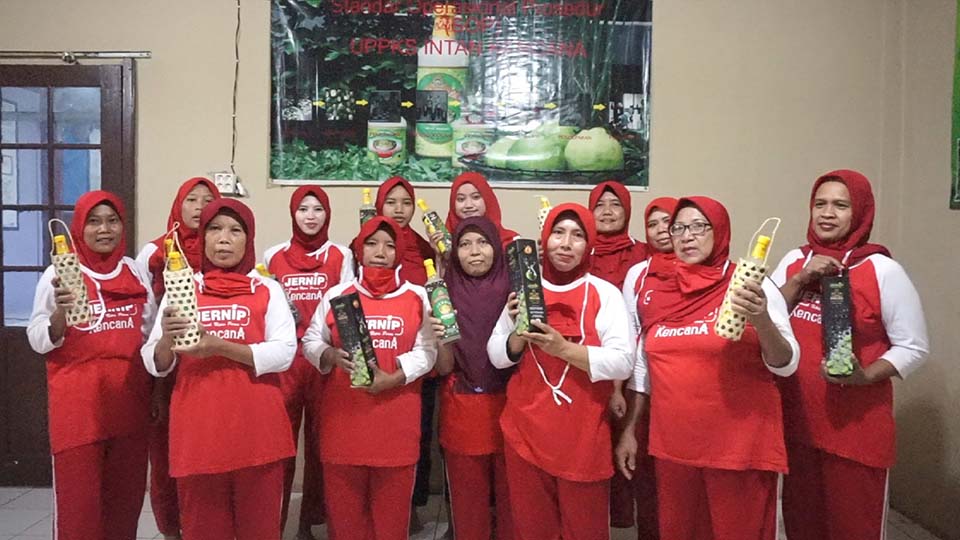Shri Mahila Griha Udyog Lijjat Papad, India
Shri Mahila Griha Udyog Lijjat Papad (Lijjat) is a cooperative established by Indian women that has developed a unique model for development and empowerment for low income female workers. Lijjat has more than 40,000 members and 62 branches across 17 states of the Republic of India (India).
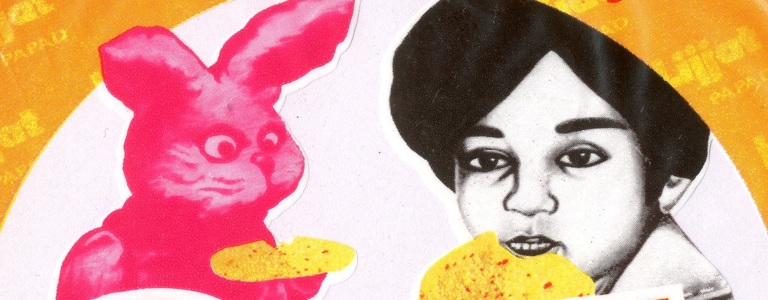
The cooperative has not only developed a number of quality products and brands – including wafers and breads; Lijatt has enhanced the skill of its members via capacity building and communitarian programs.
As a result of Lijjat’s business and development strategies, thousands of women across India have gained financial independence and improved the prospect of a better life for themselves and their families. At the same time, the cooperative has established new models for community development and poverty reduction and become a winner of multiple awards.
Traditional knowledge
Lijjat’s initial success was based on the production and sale of papad (or pappadum) – a crispy-thin cracker or wafer that is a staple food in India. Made of the dough of black gram (vigna mungo; a bean that is indigenous to southern Asia), papad is usually fried or dry-heated and served as an accompaniment to a meal or as an appetizer or snack.
The wafer, also called urad in the local dialect, can also be made of the flour of chickpeas, rice, lentils or potato. In addition, papad is often seasoned with salt and peanut oil and served with curries, vegetables, chopped onions or chutneys. Alternatively, dips and condiments – including chili and garlic – can be used to consume the food. Indeed, there are a number of regional and even individual family recipes for preparing papad.
To make papad in the traditional way, women across India have for generations kneaded and rolled the dough by hand (often as a communal activity) into a thin, round wafer. Thereafter, the wafer is seasoned and dried (customarily under the sun) before deep frying or roasting on an open fire stove. Modern methods may use a microwave oven instead for heating the wafer.
For centuries, making papad was carried out in cottage industries (small, family-based manufacturing units) that were spread around the country. The techniques used for making the wafer, furthermore, were passed down from mother to daughter in Indian households as a form of traditional knowledge.
Lijjat has relied on this historically significant product and tradition in order to spearhead the cooperative’s entry into the local, national and international foods market.
Research and development
Lijjat was created in 1959 by seven non-reading but skilled women neighbors who all knew how to make papad-based dishes. Living in the south of Mumbai (formerly called Bombay), the capital city of the state of Maharashtra, India, the women decided to make and sell papads for a local merchant.
At the beginning, the seven women loaned a small sum – 80 rupees (Rs; less than US$1 in 1959) – which they used to buy the ingredients necessary for making the wafer. Their initial output was four packets of papad.
To improve production, Lijjat’s founders increased their capacity by recruiting more members (up to 25 within three months) and purchasing more manufacturing and storage equipment – including a cupboard for storing utensils which they kept on a nearby terrace.
A year later, the papad makers acquired a stove with a cover – to protect against rain in the monsoon season – and abandoned use of charcoal for drying papad (as it dirtied the wafer). Instead, they used a cot suspended above a stove where the wafer could be dried.
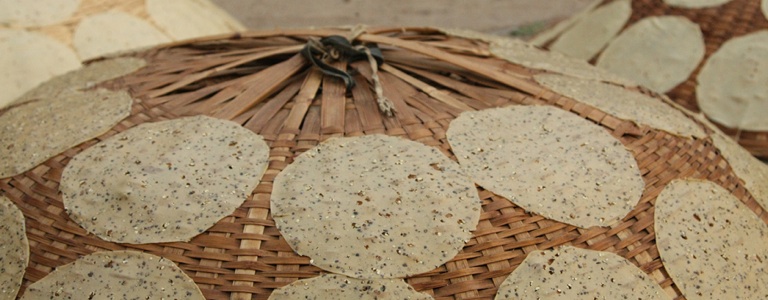
As the number of members grew and production processes and product quality improved (it took 15 minutes to dry papad using the suspension method; the women, who then numbered over 100, ensured only well-made flour was used; and, below par papads were not sold but locally distributed freely), demand from customers increased.
Having overgrown the terrace’s capacity, which had doubled as a storage site for their products, and with a positive reputation of the cooperative’s quality goods spreading locally, Lijjat sought to improve and modify its facilities and logistics further.
To this end, the flour, once kneaded, was taken home (rather than being stored on the terrace) by teams of members who rolled, cooked and dried it overnight in their houses. Returning to work the next morning, the women would have with them a product that could be weighed, packaged and sold.
In subsequent years, special buses would be mobilized to transport Lijjat’s workers to and from their homes – thereby improving productivity and efficiency outcomes.
Another innovation early on in the cooperative’s operations was to establish organizational principles based on the ideas of Chhanganlal Karamshi Parekh (popularly known as Chhaganbapa), a respected thinker and leader in the local community. Based on Mr. Chhaganbapa’s advice, Lijjat’s members ensured that the organization would implement professional business practices – minimum standards for producing papad were implemented, for instance – while ensuring quality and self-sufficiency.
Lijjat would, as a result, not rely on charitable donations to finance its development.
In addition to these principles of professionalism and self-sufficiency, which proved to be key concepts for Lijjat’s development, the cooperative entrenched an ethos of equality and inter-dependence.
Lijjat subsequently developed three core principles: mutual affection and concern (employees all have an equal status); devotion (the workplace is treated not just as a place of employment but also one of reverence); and, sarvodaya or collective ownership (also called trusteeship, a central idea of the historical Indian leader Mahatma Gandhi).
Indeed, each member at Lijjat – considered an equal and a co-owner of the cooperative whose opinions contribute to all business decisions (no regard is given to a member’s social status or religious persuasion) – is affectionately referred to within the organization as sister.
Each sister (who receives 15 days of training when she joins Lijjat and has to be over 18 years old) works approximately six hours a day and receives an average monthly wage – called vanai – of between Rs. 2,000 and Rs. 3,000 (approximately US$ 35 and US$ 53). Extra vanai is paid on the occasion of an Indian cultural festival.
Although the sisters in each branch share the losses and profits among themselves, the system has ensured a steady income for its members (that can support a woman and her household) with the additional benefit of filling members with pride and a sense of financial self-sufficiency.
Last but not least, a key element of the organization’s development was to ensure an all-woman membership. The only male workers at Lijjat are employed on a contractual basis for specialized roles.
Paying homage to papad’s manufacturing tradition, the cooperative operates a manual production line (the wafers are still hand-rolled and dried within members’ homes, thereby ensuring employment for its members and keeping overheads low) that functions along the lines of a cottage industry.
Despite some early setbacks (attempts had failed to expand the business model to other cities such as Malad (1961), in Mumbai, and Sangli (1966), in Maharashtra), annual sales of papad in this period, as well as membership in Lijjat (approximately 300 sisters at this time), continued to grow.
With increasing but unsteady progress in the 1960s (the first Lijjat branch outside Maharashtra was established in 1968), Lijjat sought to formalize its operations via registration as a society. This recognition, which occurred in 1966, was a milestone for the cooperative as it paved the way for Lijjat to receive favorable financing (including low interest bank loans and reduced sales taxes) from a number of institutions, including the Bank of India.
In the same period, the organization successfully passed an official inspection of its operations and adopted its first written constitution.
By 2013, Lijjat had developed three main divisions of labor. Processing units begin kneading dough very early in the morning before it is rolled into papad; packaging teams arrange the previously made papads into packets and boxes; and, distribution sections receive the boxes and transfer them to distributors around the country and to the rest of the world. In the same year, the cooperative was a major enterprise with a central managing committee based in Mumbai.
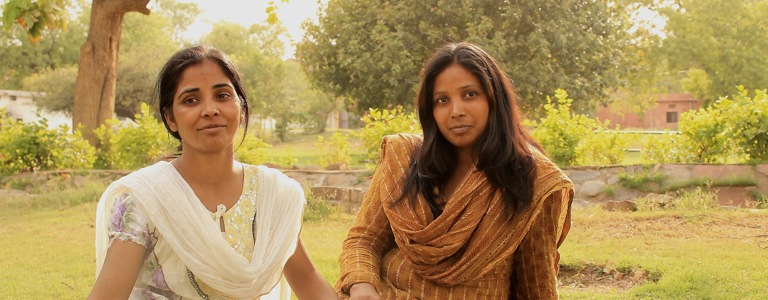
In addition, Lijjat ran a number of operations across India (both in rural and urban areas) and the neighboring region – some of the cooperative’s raw materials (such as dal or asofoetida, a perennial herb) are procured from other countries including the Republic of the Union of Myanmar.
The cooperative has managed 35 divisions which work autonomously (except for the procurement division, which is centralized so as to ensure consistency in standards for raw materials sent to each branch) but with uniform guidelines for employees and for production standards. These divisions produce a variety of goods which, apart from papad, include spices, flour, chapatti (unleavened, flat bread), soaps and washing detergents.
Branding and commercialization
Lijatt has developed its branding and commercialization strategy by raising production standards, developing a niche market identity, and creating a variety of products. To maintain standards, a quality control team at Lijjat’s headquarters receives samples daily of the cooperative’s products, which are then tested for quality – samples and batches (which are received from each branch) that do not meet standards are destroyed.
Sisters at the organization, moreover, not only ensure personal hygiene when preparing food products; they also make sure that all work surfaces are kept to established standards of cleanliness. As part of its quality assurance, Lijjat has maintained tried and tested traditional manufacturing and production methods based on handmade goods.
In addition to instituting quality in its production processes, the cooperative has branded itself within the niche market of enterprises that are run by women for the empowerment of women. As a result, Lijjat prioritizes the financial and social welfare of a sector of producers that have traditionally been at the margins of the Indian economy – low income but skilled female workers.
To this end, the organization has relied on a number of slogans that capture its ethos including “A unique organization of women, by women, for women,” which appears on Lijjat’s corporate website. Lijjat has also utilizes the slogan “SASA: Symbol of Women’s Power,” which appears on the organization’s product sleeves.
Indeed, the cooperative’s trade name – Shri Mahila Griha Udyog Lijjat – encapsulates its women-orientated, quality-driven and tradition-inspired business ethos. In English, Shri can translate as Mrs. or Ms., mahila as women, griha as home, udyog as industry, and lijjat as tasty.
Having carved out an ethical niche in the market for its quality goods, the cooperative has diversified its portfolio of products beyond papad (which is commercialized in 14 varieties and a number of flavors) and thereby entered new markets. As early as 1974, Lijjat expanded its operations to include khakhra – a cracker made of moth bean (Vigna aconitifolia, a herb grown in South Asia that produces edible beans).
Soon thereafter, Lijjat consolidated its presence in the traditional foods market of India. The organization launched a number of new products including masala (a variety of mixed spices; launched in 1976), vadi (a fried or steamed snack made of dill and chickpea flour) and wheat atta (a flour used to make flat breads such as chapatti).
Other product lines and divisions include: a product packaging and household goods manufacturing branch for items such as matchsticks (1979) and incense sticks and a division for making washing detergents or soaps (1988). Lijjat’s brands of soap (SASA Detergent Cake, SASA Detergent Powder and SASA Liquid Detergent), moreover, have become some of the organization’s most popular products.
The cooperative also operates a bakery division (started in1979) and a printing and advertising division (1977) – this division produces Lijjat Patrika, an informative in-house publication sold at a nominal fee.
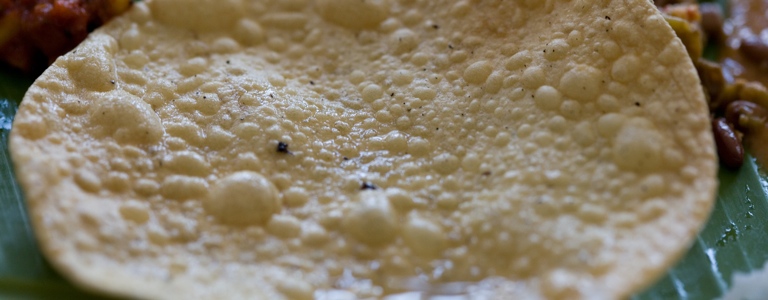
In order to distinguish its many brands and products in a competitive market, Lijjat has developed distinct product sleeves with iconic images and colors that have resonated with consumers – especially in India.
Two characters have appeared on the cooperative’s product jackets: the image (in black and white) of a young child called “Babla” – a boy who is always shown eating papad; and an image (in pink) of a bunny rabbit, also seen with papad in hand. Both Babla and the pink rabbit have become iconic images of the Lijjat brand – the rabbit featured in a well-known TV campaign for the organization that was first aired in the 1980s.
Indeed, since that period Lijjat has produced a number of memorable product promotion campaigns via local language newspaper advertising, TV and radio campaigns, and through industry events and fairs. With each division of the organization making proportional contributions for financing such campaigns, Lijjat has been able to reach a nationwide catchment of customers and clients.
The cooperative, furthermore, has sought to gain an advantage on rivals via competitive product pricing. Set by headquarters, Lijjat’s products are priced so that they are affordable for middle and low income customers.
Further to its product branding, diversification and pricing strategy, the organization has relied on a wide network of local, national and international distributors and dealerships in order to enter the national, regional and global marketplace.
Typically, local distributors, who usually rely on three-wheeled vehicles to collect stock (on average, 100 boxes of papad per day) and deliver it to a wide network of retailers, enter a strict contract of delivery with the cooperative. International exports, meanwhile, are carried out by contracted export merchants.
As of 2013, 30 to 35% of Lijjat’s papad products were exported to a number of markets around the world including Asia, the European Union (EU), the Middle East and North America. The cooperative, in addition, had captured almost 90% of India’s papad market and developed a significant foothold in the spices and detergents sector of the country – with between 15 and 20% market share in these sectors.
Trademarks
In order to protect its hard-won identity while distinguishing its brands and products in a competitive global marketplace, Lijjat has relied on the intellectual property (IP) system. To this end, the organization registered a trademark for Lijjat (1967, 1976, 1977, 1981, and 1991) and Lijjat Papad (1973, 1993) via the Controller General of Patents, Designs and Trademarks (CGPDT) – India’s IP office.
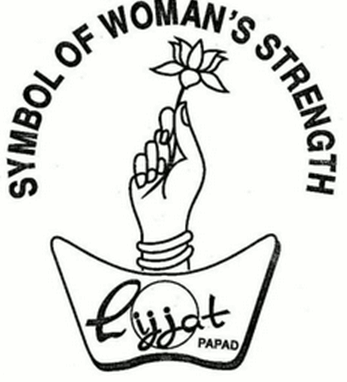
Further to this registration, Lijjat has protected its trade name and identity as a supporter of the rights and causes of women by registering a trademark for Shri Mahila Griha Udyog Lijjat Papad (2005) and Symbol of Woman’s Strength Lijjat Papad (2012), also via the CGPDT.
Indeed, the organization has over 40 trademarks for a number of products registered at the CGPDT including Lijjat Atta (1998), Lijjat Fishmasala (2000), Lijjat Sunday Special Masala (2000) and Lijjat Meatmasala (2000).
Keen to expand into the lucrative North American market, the organization registered a trademark for Symbol of Woman’s Strength Papad (2012) in the United States of America (USA) at the United States Patent and Trademark Office (USPTO).
In addition to securing its identity in India and the USA, Lijjat secured its reputation in yet another lucrative market, the EU, via a trademark registration for Symbol of Woman’s Strength Lijjat Papad (2012) at the Office of Harmonization for the Internal Market.
With IP secured assets in India, the EU and the USA, the women’s only organization has been able to grow with confidence into new markets around the world.
IP infringement
Despite valiant efforts to protect its IP via registered trademarks, Lijjat’s popular products have faced counterfeiters who have attempted to ride the coattails of its success. In 2001, for instance, three people were arrested in Bihar, a state in the north of India, under suspicion of trying to pass off non-Lijjat products for those made by the cooperative.
To counter such cases of infringement, Lijjat not only relies on the relevant national authorities to prosecute those accused of wrongdoing; the cooperative also actively educates customers and clients on how to detect and prevent violation of its IP.
On the cooperative’s website, customers are provided a checklist – including the cooperative’s unique identification features: Lijjat’s headquarters address and the iconic images of Babla and the rabbit – which a customer ought to see on the sleeve of genuine Lijjat products. Customers, moreover, are actively encouraged by Lijjat to purchase products from officially authorized distributors and retailers only.
Public health
Although poverty negatively affects all sections of society, among women it has a more deleterious effect both on them and their families (including children), according to the World Health Organization (WHO), a specialized agency of the United Nations (UN) with a mandate for health.
Partly caused by socio-cultural factors, such as discrimination in or exclusion from the workplace due to gender (according to the World Bank, an international financial institution, 2006), women’s poverty and the alleviation thereof has been a constant goal for Lijjat. Moreover, as women’s poverty, poor health and lack of basic education are often linked, the cooperative has made it a top priority to tackle all three issues at the same time.
By 1979, Lijjat organized a seminar in Bombay – called Childcare and Mother Welfare – in collaboration with the United Nations Children’s Fund (UNICEF), a specialized agency of the UN that works to improve children’s rights.
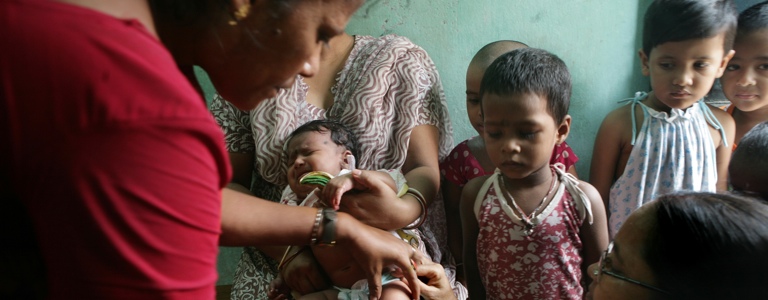
In addition to such seminars, and by empowering its employees through employment and joint ownership of Lijjat, the cooperative has taken practical steps to build the private, public and potential capacity of its women employees.
To achieve these aims, all sisters at the cooperative receive scholarships or grants in order to improve their education – including allocations that allow them to attain primary school education and increase literacy.
Grants have also been provided to help members improve their ability to use information technology tools such as computers. These funds, moreover, are often extended to include the sisters’ families, especially their daughters.
The cooperative also organizes a number of community projects for its employees including preventative healthcare programs and classes for practical skills training such as typing, cooking, sewing, knitting and toy making.
Via Lijjat’s capacity building initiatives, employees have gained the skills necessary in order to become independent, fully active members of society – a development model sometimes called inclusive growth – while enhancing the circumstances linked to their health outcomes.
Business results
From humble beginnings on the streets of Mumbai, Lijjat has become an internationally recognized organization helping to change the lives of thousands of women, and their families, across India. At the same time, the cooperative has produced impressive business results and become an award-winner.
Lijjat won the “Best Village Industry” award (1998 to 2001) presented by the Khadi & Village Industries Commission – a subsection of the Ministry of Micro, Small and Medium Enterprises of India.
In the same period, the organization was recognized for its work with women via an award for “Businesswomen of the Year for Corporate Excellence” (2002), given by the Economic Times, an established business publication in the country.
In addition to being recognized as a leader in women’s empowerment, Lijjat was praised for its brand development strategy through a “Brand Equity Award” (2005), presented by the Progress, Harmony and Development Chamber of Commerce and Industry, an etablished business consultancy based in New Delhi, India.
With several other awards for its ethical, business and brand development strategy under its belt, as of 2013 the cooperative had an annual turnover of approximately Rs. 650 crore (roughly US$100 million). In same year, Lijjat celebrated over half a century in business and capacity development for urban and rural low income Indian women.
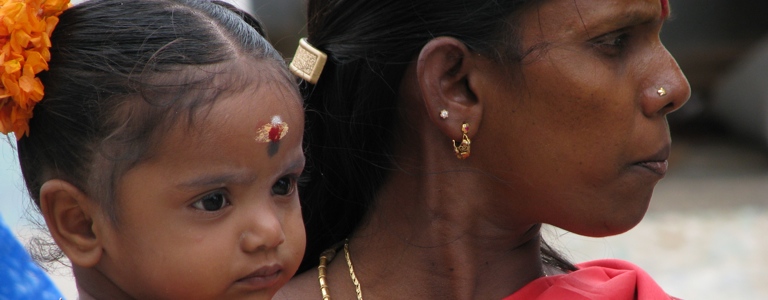
It takes a village and a city
Lijatt has blazed a trail for cooperative business models that are also professional, ethical and economically sound. In the process, the women’s organization has created generations of employees who are not just self-sufficient; they are also enriching their own lives and those of others in their communities.
As one of Lijjat’s original founders, who is in her eighth decade of life, said: “We were semi-literate, which restricted our chances to get jobs; but we realized our papad-making expertise could be used to earn small amounts of money […]” In retrospect, the organization is fulfilling a lot more than its original, modest goals.



